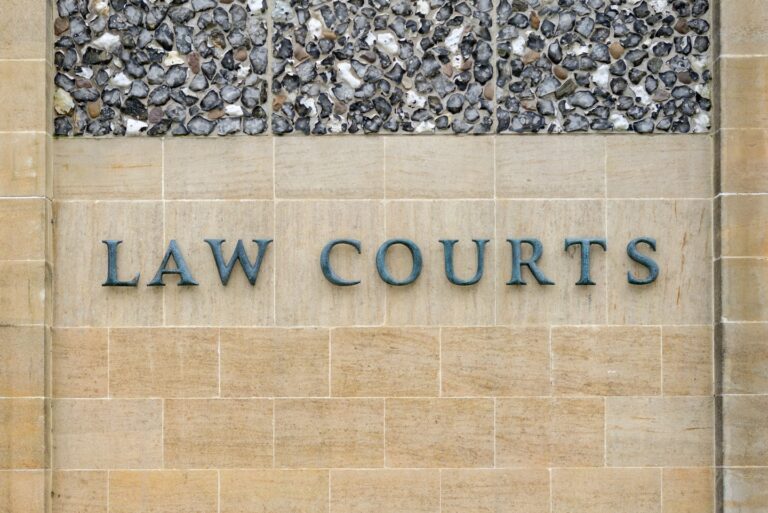
Soaring inquest delays are devastating families and jeopardising evidence – we need an urgent plan
The UK’s current coronial system is plagued with delay and is consequently failing to provide adequate support to bereaved families.
The outcome of inquest investigations provides many families with crucial answers enabling them to move forward in their grief. Although they are supposed to conclude within six months, the number of inquests lasting more than two years in England and Wales quadrupled from 378 in 2017 to 1,760 in 2022.Whilst undoubtedly the Covid-19 pandemic will have played a part in worsening the situation, it seems unlikely to be a mere coincidence that inquests have been stagnating steadily since the 2014 funding cuts began to bite. The wait for closure can be agonisingly painful and can prolong a grieving family’s anguish as they’re left in limbo.
What does having an inquest mean?
The ultimate purpose of an inquest is to investigate four key inquisitorial questions: –
- Who passed away?
- When did they pass away?
- Where did they pass away?
- How did they pass away?
It will come as no surprise that many feel unable to move on with their lives until they have received answers at an inquest to the above questions. It is therefore inconceivable that families in England and Wales are being subjected to increasingly lengthy delays when navigating the coroners’ courts.
Why prompt inquests matter
Aside from the additional distress and heartache endured by bereaved families subjected to a delayed inquest, it seems unlikely that a delayed inquest would uncover the same degree of reliable evidence as an inquest conducted in a timelier fashion.
Inevitably, an inquest proceeding years after the event may examine witnesses who are vaguer in their recollection of events calling into question the credibility of their accounts. In addition, the retrieval of dependable evidence identified through cross-examination is less likely. In essence, the existing delays in the coronial system are impeding the proper administration of justice. This will inevitably lead to a loss of faith in the coronial system.
It is also important to note that coroners are under a duty to make a ‘Prevention of Future Deaths’ report if their investigations uncover a concern that action should be taken to prevent future deaths. In some instances, this mechanism is lifesaving. The report is public and can be made to individuals, organisations, local authorities or government departments and their agents. The recipient then has the opportunity to consider their practices and respond to the coroner. The issuing of these reports can bring peace of mind to bereaved families who can take solace in knowing the same mistakes will not be repeated. However, conducting a delayed inquest may well cost lives given the delay in issuing the report.
A concern for the future is that existing backlogs of cases may inadvertently deter coroners from conducting more thorough investigations, unless pressed to. This is more likely to occur where families are unrepresented at inquest proceedings as they will be less accustomed to navigating the system.
Inquests for serving Armed Forces personnel
Families mourning the loss of a loved one serving in the Armed Forces are subjected to even lengthier investigations. Where a death arises from a military incident, a Service Inquiry is also held. A Service Inquiry is independent of a coroner’s inquest and its purpose is to ascertain facts and to issue recommendations to prevent recurrence. It is an internal investigation designed to maintain operational efficiency. However, the findings of a Service Inquiry are often used to inform the coroner’s inquest by clarifying more complex service issues.
The following cases demonstrate how existing deficiencies are impacting bereaved families in the context of military claims:
- Case Study 1:
A young woman sadly took her own life at the age of 21. Her family instructed us to represent them at the inquest but waited four years for the inquest to proceed whilst investigations were conducted by the military.
Investigations concluded that the deceased had suffered gross sexual misconduct by her superiors. A total of 61 recommendations were made by the Service Inquiry confirming a multitude of failings, including delay.
The coroner concluded that the British Army had missed crucial opportunities to prevent the deceased’s death and the case generated an array of publicity about the toxic culture at Sandhurst. However, the four-year wait for justice was agonising for the family.
- Case Study 2:
The deceased’s husband instructed us following protracted correspondence between himself and the coroner whilst he was grieving the loss of his wife.
At the time of our instruction, our client was aware of a hearing date but had no knowledge that this hearing would be his wife’s inquest nor did he understand that he could put questions to the coroner on behalf of the family.
Our client, whilst unrepresented, was not informed of any witnesses and he was not aware of the option to request disclosure. Following our involvement, a pre-inquest hearing proceeded in which our client was given the opportunity to make submissions in respect of the scope of the inquest and put questions to the coroner.
Case studies such as these stand as stark reminders that urgent reform is required of the current coronial system.
Inquest proceedings are fundamental to uncovering truths and upholding the rule of law. The timely instruction of legal representatives from an early stage helps grieving families to redress imbalances of power when facing large public bodies and/or corporate entities with more resources at their disposal.
However, systemic delays in the coronial system are causing additional harm to families whilst thwarting the integrity of evidence. The current management of the delays to inquest proceedings is insufficient. Failures to conduct timely inquest proceedings and delays to Service Inquiries could well result in missed opportunities to prevent deaths. Urgent attention should now be given to the existing delays to ensure the proper administration of justice and to restore faith in the coronial system.










